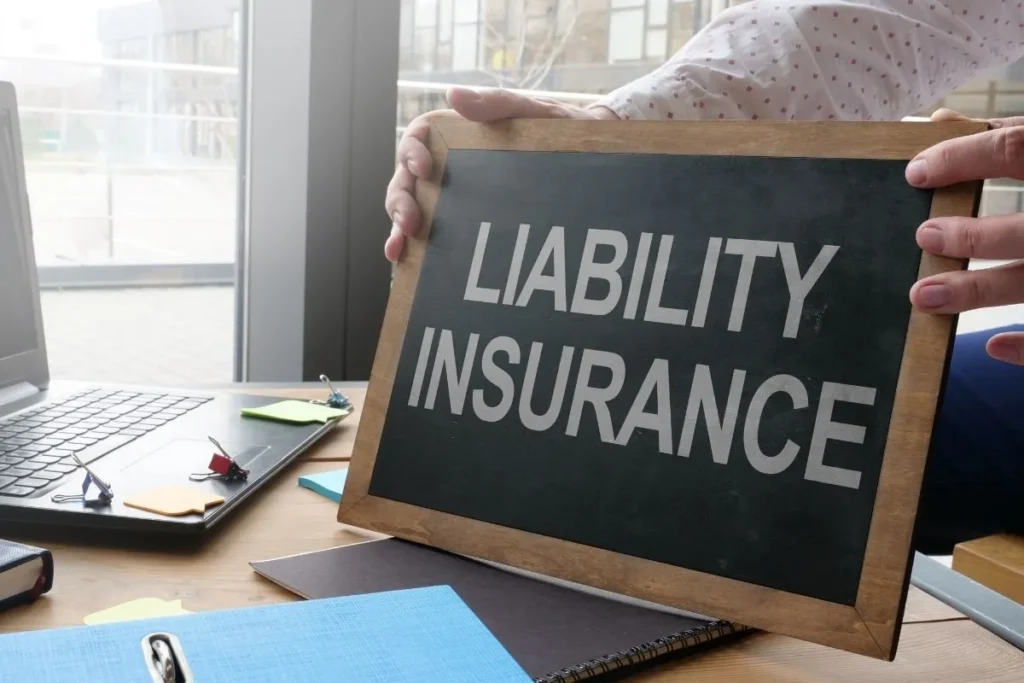
Is Public Liability Insurance Mandatory
Public Liability Insurance
Hello, this is Brini. Let’s just say that yesterday’s attempt to bake banana bread gave my smoke alarm a nice workout. It made me realize how important having a backup plan is—it’s like insurance against life’s unforeseen events.
Although it’s not typically required by law, public liability insurance is advised if you own your own company or operate for yourself and frequently deal with clients, contractors, and the general public.
Being one step ahead of accidents might be beneficial. Your company may suffer financial losses as a result of a legal dispute, particularly if you lack the funds to resolve a claim without the proper insurance.
You usually don’t need public liability insurance because it isn’t required in most cases. But it can offer crucial support. It might be wise to get insurance before you deal with clients or the general public because public liability insurance won’t protect you in the past.


Which Trades Require Liability Coverage?
If your company interacts with consumers or the general public. Alternatively, you might require public liability insurance if there is a chance that you could cause property damage.
Typical business types covered by tradesman insurance include:
- Builders and Electrical Workers
- Carpenters
- Gardeners
- Decorators and painters
- Plumbers
- Sign writers
This is not a comprehensive list because liability insurance may be necessary for many firms.
Policies That Are Essential For Small Businesses

There’s only one policy you’re legally required to have as a small business, and that’s employers’ liability insurance (EL).
EL covers your business in the event that one of your staff members claims they’ve suffered an illness or injury as a result of working for you. It pays for any legal fees and damages related to the case’s defense.
If you don’t have EL, the Health and Safety Executive (HSE) can fine you £2,500 for every day you go unprotected. So, flouting the law could be costly.
Additional Policies to Take Into Account
Even though EL is the only insurance that the law says you must have, most small business owners choose to invest in other policies to protect themselves against unforeseen events and financial losses.
Insurance For Public Liability
One of the most common insurance plans for small enterprises is public liability insurance (PL), which protects you against lawsuits brought by the general public.
We are all aware that mishaps do occur. However, your company may have to pay millions of dollars in compensation and heavy legal expenses if you or a member of your team unintentionally injures someone or damages their property. PL is crucial in this situation because it pays the bills and keeps your company operating.
It’s also important to keep in mind that your suppliers and clients can ask you to have PL in order for you to work for them. Thus, it’s a crucial cover in a number of ways.

Insurance For Portable Equipment And Contents
Every firm depends on technology, equipment, and other tangible assets; without these, operations would come to a complete stop.
By safeguarding all of your tangible assets against loss, damage, flooding, theft, and fire, content coverage is intended to keep the show running no matter what. Therefore, you do not need to pay for costly replacements.
As the name implies, portable equipment insurance covers everything you bring with you, such as:
- Tablets
- Smartphones
- Laptops
- Cameras
Everything you maintain on-site, including your furniture, fit-out, and fixed equipment, is covered by standard contents coverage.
Professional Indemnity Insurance (PI) is intended for companies that provide expert advice or services. It will pay for any litigation and compensation expenses if you make a mistake or if a client experiences (or alleges to experience) a monetary loss as a result of your services. It might even aid your new firm because, similar to PL, some of your consumers will probably insist on PI.
What Is Covered Under Public Liability Insurance?
The following are some situations where a public liability policy might be useful:
The screen of your client’s tablet is damaged when your employee unintentionally knocks it off the desk while bending over to get a glass of water during a routine catch-up visit.
Alternatively, a client might come into your office shortly after the floors have been mopped, but there isn’t a sign, so they trip and hurt their hip. Both situations at your client’s office and at your place of employment are covered by public liability insurance.
To gain some publicity for your company, a group of your employees go to a major trade fair. You choose to send them off with your new marketing stand, but one of the boards collapses and hurts a bystander during the performance.
If that individual chooses to file a lawsuit, this regrettable situation could become quite expensive. These kinds of hazards are present when you attend or host charity or business events, and public liability insurance can help protect you against them.
The uneven step you’ve been meaning to have mended could cause a customer to twist their ankle when they arrive at a meeting at your home.
Your marketing flyer delivery person may tumble over the telephone lines as they drop them off in your hallway, breaking their wrist and rendering them unable of driving or working. Even with a home-based business, accidents can happen, and public liability insurance can be beneficial.
Most insurance companies waive deductibles on windshield repair as well even if you do not have auto glass coverage, provided the damage is merely a small chip or crack that can be fixed.
As always, it is beneficial to request your policy documents and determine what insurance requirements you have. If they allow for these windshield claims, some insurance companies limit the number of times you can file a claim over an auto glass issue.
If I Work From Home, Do I Still Need Public Liability Insurance?
Although it’s not required by law, you may want to think about getting public liability insurance if your home-based business involves hosting guests on a regular basis.
While visiting your workplace from home, a client might slip over a loose wire in the corridor and break their wrist. If you inadvertently cause damage to your clients’ property while they are at your home office, public liability insurance can also be able to assist.
Public liability insurance may shield you from a claim against your company by covering the related expenses and penalties.
Liability Insurance For Directors And Officers (D&O)
Any director or founder of a company should give purchasing directors’ and officers’ coverage (D&O), sometimes referred to as management liability insurance, careful thought.
D&O protects the people who hold managerial responsibilities inside the company, not the company overall. It protects them against any claims made against them directly, such as violations of health and safety regulations, improper management of the company pension, or inaccurate financial reporting.
Penalties in these cases can be severe and include fines, disqualification, or even jail time. D&O will assist you in defending your position while paying for your legal fees and damages. If you’re looking for investment, this is a crucial one to have because potential investors would probably inquire about your coverage.
When buying management liability insurance, there are a few things to look out for, especially if you’re a startup. One of the largest hazards facing early-stage organizations is insolvency, which is not covered by many insurance. Therefore, be careful to locate one that does.
You should search for a policy that covers claims from significant shareholders (those who own above 15% of the company); otherwise, you may discover that you are not covered for some claims.
Conclusion
FAQ
This means that if you don’t have public liability insurance, you can be in violation of your contract, which could result in its termination or possibly legal action against you. To reduce any financial risk to yourself, it may be wise to hold it even if your contract doesn’t call for it.
You probably require public liability insurance if your company deals with the general public. This policy protects your business against third-party claims of property damage or injury resulting from an occurrence brought on by your business’s operations.
Depending on your specific firm, you may or may not be legally required to obtain business insurance. Most companies with employees are required by law to carry employers’ liability insurance, although regulatory agencies may also demand alternative insurance, such as professional indemnity.

